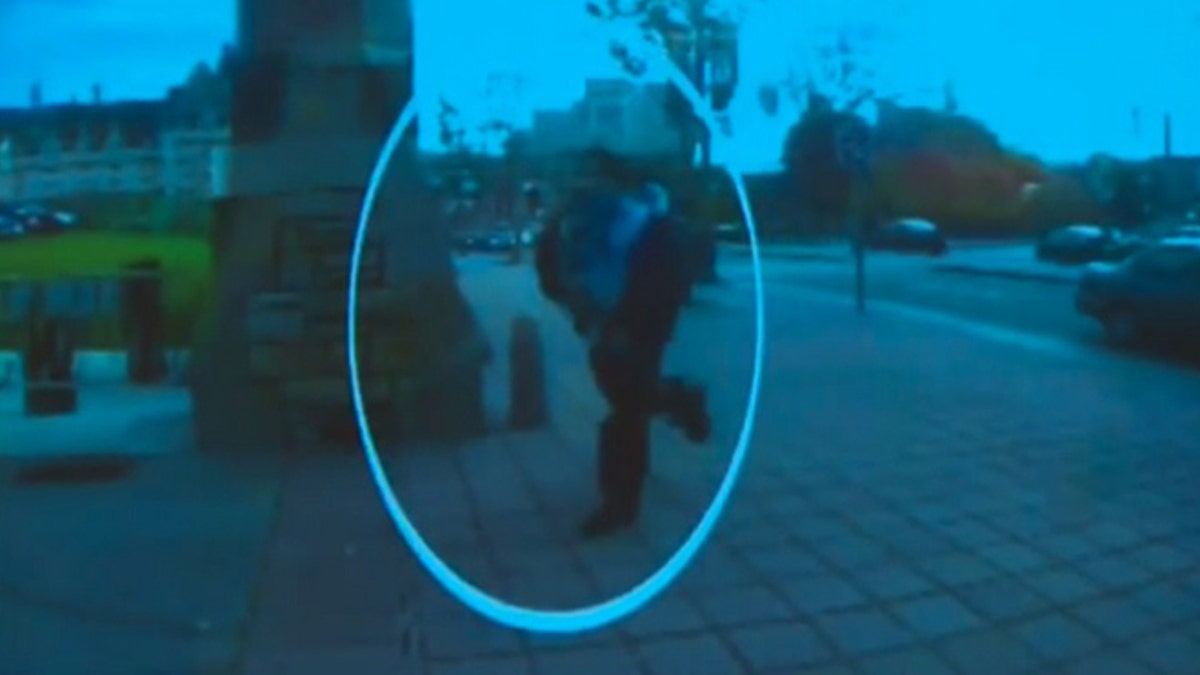
The Ottawa gunman had talked of going to the Middle East, but even though ISIS Tweeted out his picture, authorities have not disclosed ties to any terrorist group.
Al Qaeda spent less than $1 million on its signature 9/11 attack, but Islamic State has found an even more cost-effective way to strike on American soil - inspiring psychotic sympathizers to commit "lone wolf" attacks that blur the line between random crime and terrorism, say experts.
Grisly photos and video of severed heads and mutilated bodies tweeted out and posted on the Internet, combined with explicit calls to kill, have allowed Islamic State to turn American citizens into weapons, say experts. The new technique requires no infiltration by sleeper cells and no planning, coordination or logistics. Yet, it is proving extremely effective at spreading fear, they say.
[image]
“If you can kill a disbelieving American or European, especially the spiteful and filthy French, or an Australian, or a Canadian, or any other disbeliever, then rely upon Allah and kill him in any manner or way however it may be,” urged a speaker on a video Islamic State released last month.
A law enforcement bulletin obtained last month by FoxNews.com warned that Islamic State fighters have increased calls for "lone wolves" to attack U.S. soldiers in America.
"You could literally search for soldiers, find their town, photos of them, look for address in Yellowbook or something," a tweet attributed to Islamic State read. "Then show up and slaughter them.”
WATCH "GRETA INVESTIGATES: THE LONE WOLVES OF TERROR" ON FOX NEWS CHANNEL SUNDAY AT 9 P.M. ET
Linking seemingly random acts of violence to Islamic State can be difficult or even impossible. Wednesday's frightening attack in Ottawa, in which a Canadian soldier was gunned down at the National War Memorial, was carried out by a self-styled jihadist, Michael Zehaf-Bibeau. Authorities have not disclosed any known connection to Islamic State, but a Twitter account linked to Islamic State tweeted out an image of Zehaf-Bibeau even as the international media was scrambling to identify him.
[pullquote]
Alton Nolen had grisly photos of ISIS beheadings on his Facebook page and had argued with co-workers in favor of a violent and radical form of Islam before he beheaded a former co-worker in Oklahoma City last month. The shocking attack touched off a debate about whether it was a case of workplace violence or terrorism, and if it was the latter, was it at least in part attributable to Islamic State, which has actively urged sympathizers to rise up in the U.S.
As with the Ottawa attack, the answer may never be clear - and that is precisely what makes Islamic State’s broadcast to independent jihadists so dangerous, say experts.
"They don't have the capability to expand their campaign trans-nationally," said Scott Stewart, vice president of tactical analysis for global intelligence and advisory firm Stratfor.. "These attacks gives them some capability to wreak havoc in the West."
The power of Islamic State's message lies in its sheer brutality, Stewart added. While civilized people shudder at the stomach-turning images promoted as evidence of the Syria- and Iraq-based terrorist organization, disaffected and violent loners find inspiration.
“Because of the way the Islamic State is over the top, they seem to be appealing to more psychotic people than Al Qaeda,” Stewart said. “It raises the possibility of seeing more of these types of attacks.”
[image]
Another advantage Islamic State likely finds in convincing western sympathizers not to join them in the so-called caliphate, but to take action where they live is that it is nearly impossible to stop.
“If it’s true that these are in fact lone wolves they are much less trained and capable of a wide spread attack,” said Christopher Prable of the Cato Institute. “But that doesn’t mean that they won’t be a threat. Terrorism works by inducing states to go to extraordinary lengths to stop any efforts against them.”
[image]
Terrorist groups can revel in such attacks even if stateside prosecutors can't pin the blame on them. Ali Muhammad Brown, who was charged in August for a cross-country murder spree that took four lives, told authorities he killed college student Brendan Tevlin, 19, on June 25 in New Jersey to get "vengeance" for the "millions of lives lost every day" in Iraq and Syria.
And in New York on Thursday, Zale Thompson, 32, who police say was a recent convert to Islam, was shot and killed by NYPD officers after he attacked four cops with a hatchet in Queens, leaving one officer with a fractured skull. Authorities are looking into possible terror ties, but his Facebook page offered clues in the form of a passage from the Koran, a photograph of a masked militant and a chilling threat.
"America's military is strong abroad, but they have never faced an internal mass revolt,” Thompson wrote in a post since taken down. “They are weaker at home. We are scattered and decentralized, we can use this as an advantage.”
